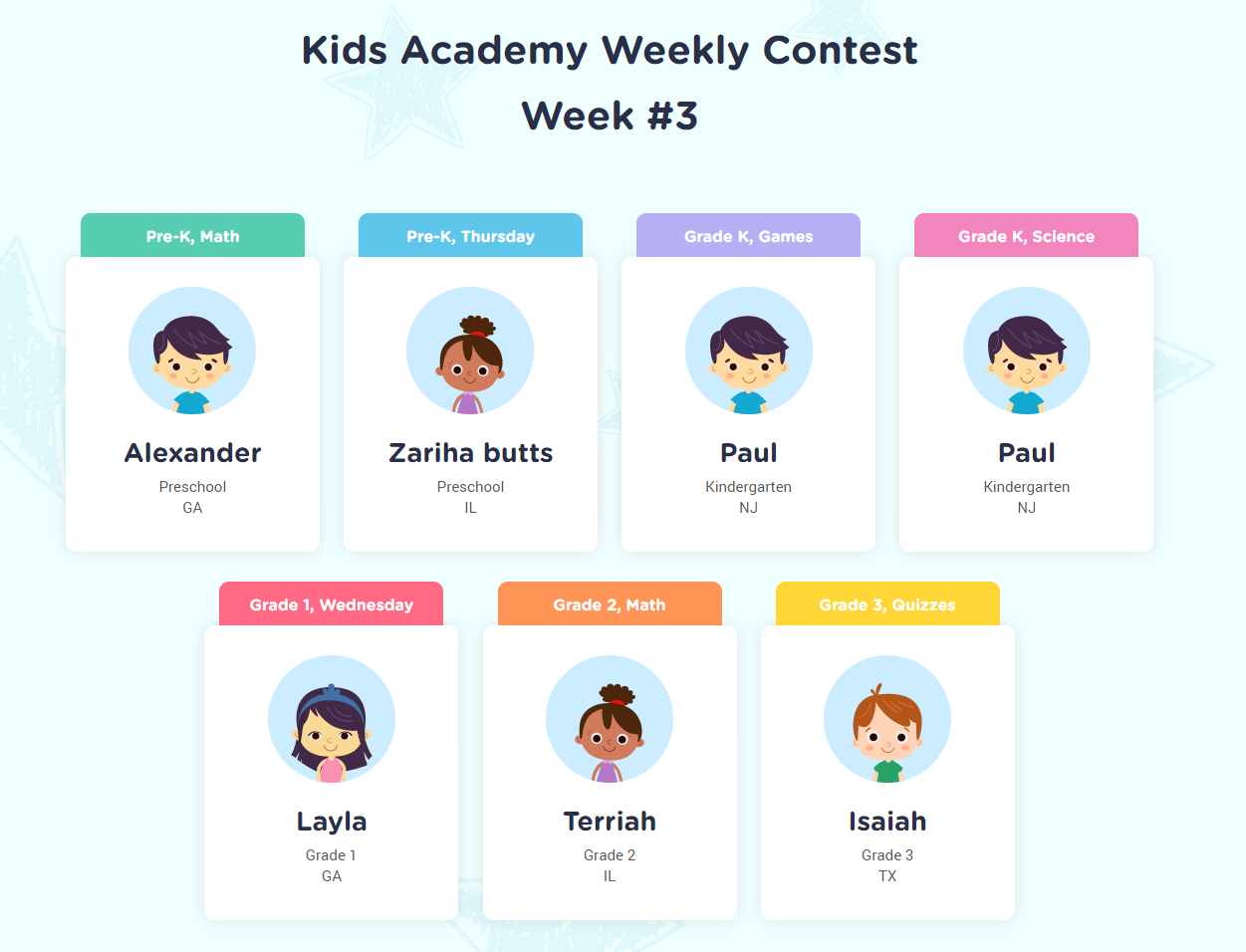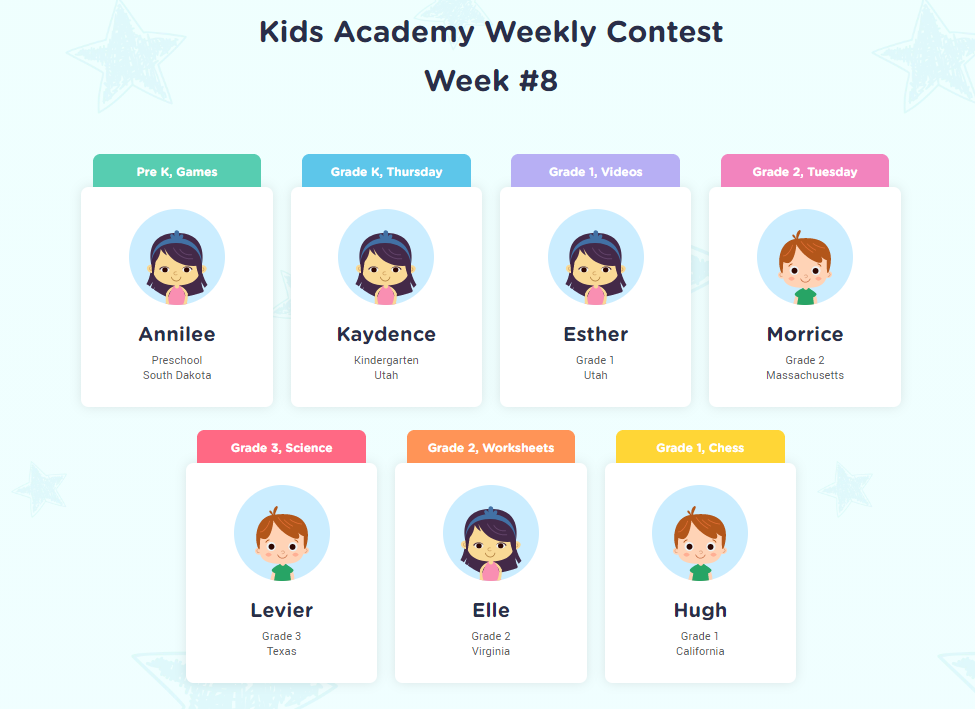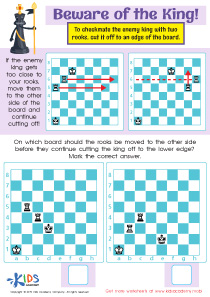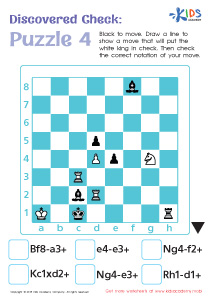Easy Chess Worksheets for 6-Year-Olds
2 filtered results
-
From - To
Introducing our Easy Chess for 6-Year-Olds worksheets, the perfect way to introduce the strategic game of chess to young minds. Designed specifically for children aged 6, these worksheets are packed with engaging activities and puzzles that simplify the complexities of chess, making it fun and accessible. From learning the basic movements of chess pieces to understanding simple strategies, our Easy Chess worksheets make it easy for 6-Year-Olds to grasp and enjoy the game. Watch as your child develops critical thinking and problem-solving skills through the timeless game of chess. Start your child's chess journey today with our Easy Chess for 6-Year-Olds worksheets!
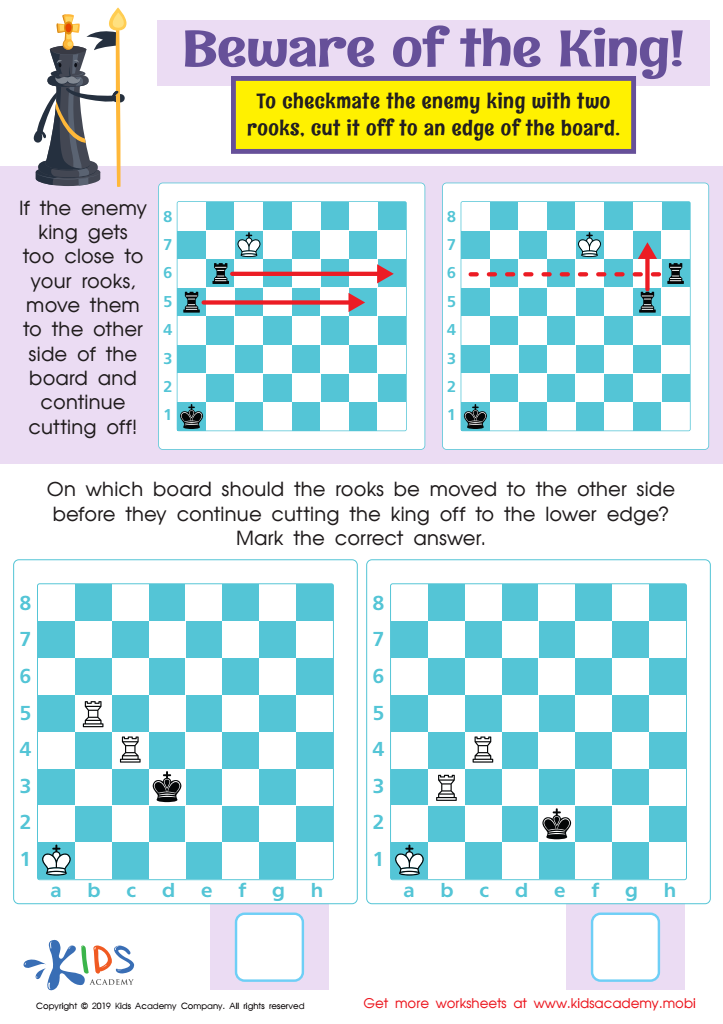

Beware of the King! Worksheet
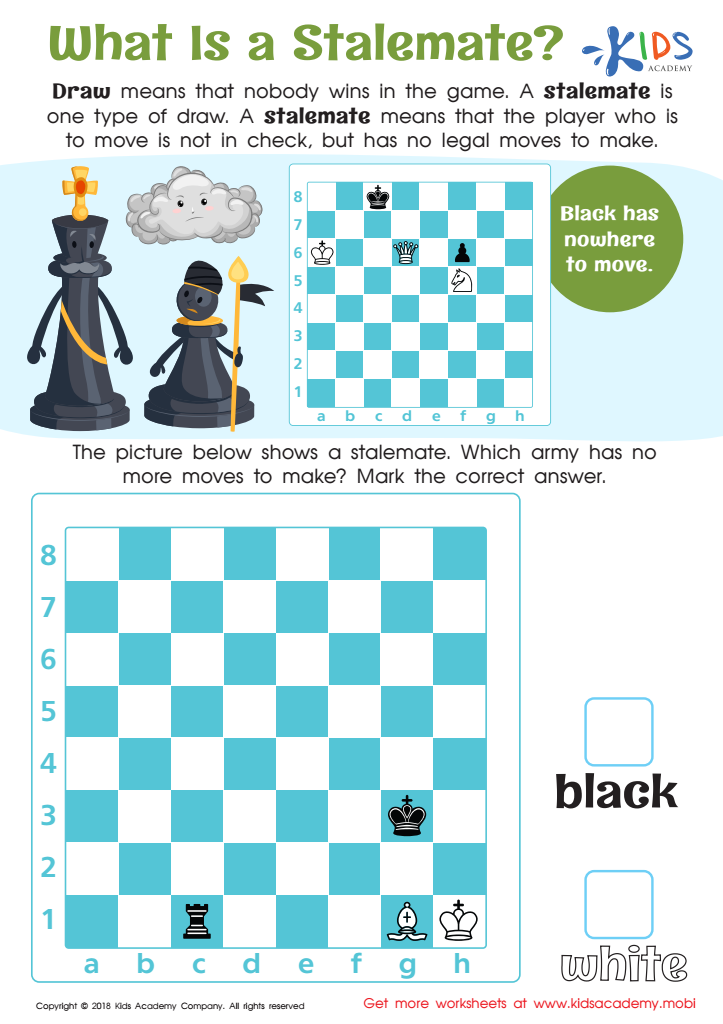

What Is a Stalemate? Worksheet
Easy Chess for 6-Year-Olds is an excellent way to introduce young minds to the fascinating world of chess. These easy worksheets are specifically designed to cater to the learning abilities of 6-year-olds, offering a gentle introduction to the game's fundamentals without overwhelming them. The simplicity of these worksheets makes chess accessible, turning a complex game into an enjoyable learning experience.
Chess is known for its benefits in improving cognitive skills, and starting early can foster critical thinking, problem-solving abilities, and strategic planning in children. Easy Chess for 6-Year-Olds introduces these concepts through fun and engaging activities that hold the attention of young learners. By breaking down the game into smaller, understandable segments, these worksheets ensure that children grasp the basics of chess, including piece movement, the concept of checkmate, and basic strategies.
Furthermore, these worksheets help in developing patience and concentration among young players. As they navigate through the puzzles and tasks, they learn the value of thinking ahead and weighing their options, skills that are invaluable both on the chessboard and in real life.
In essence, Easy Chess for 6-Year-Olds worksheets are not just about teaching children how to play a game. They are tools that equip young minds with critical life skills while ensuring they have fun in the process. This approach to learning chess sets the foundation for a lifelong appreciation of the game and its benefits.
 Assign to My Students
Assign to My Students


